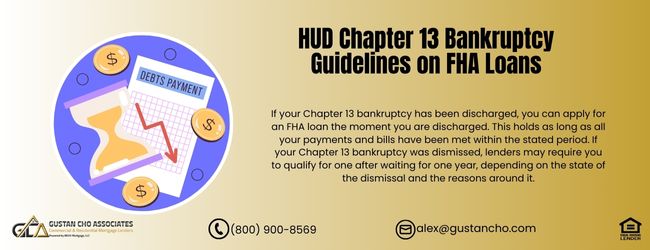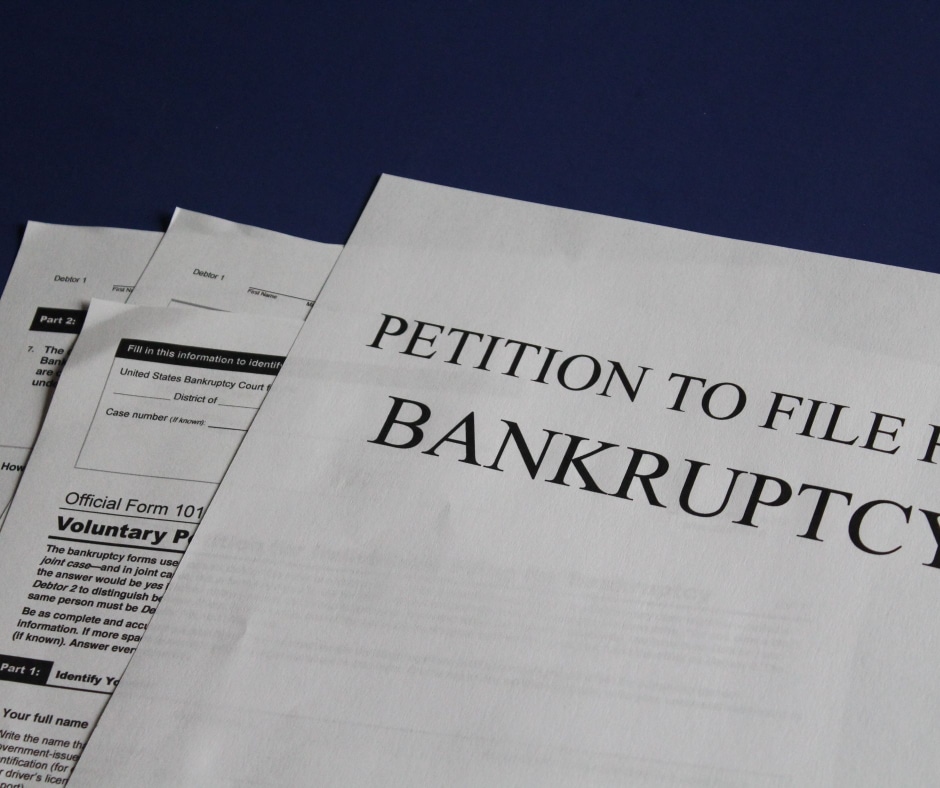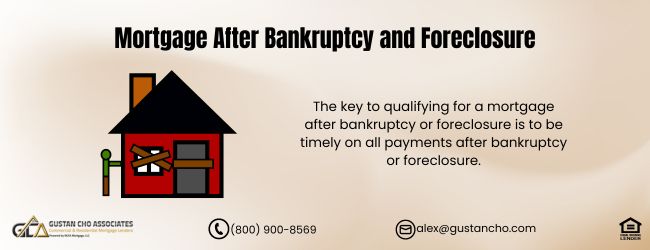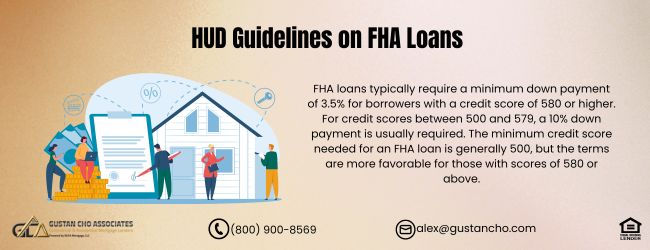HUD Chapter 13 Bankruptcy Guidelines on FHA Loans

HUD Chapter 13 Bankruptcy Guidelines on FHA loans allow borrowers in an active Chapter 13 Bankruptcy repayment plan to qualify for FHA loans while in an active Chapter 13 Bankruptcy repayment plan. The way HUD Chapter 13 Bankruptcy Guidelines state on HUD 4000.1 FHA Handbook is anyone who has filed Chapter 13 Bankruptcy is eligible to apply for an FHA loan one year after the filing date and after having made twelve timely payments to the trustee of the bankruptcy court. The borrower can go through a home purchase and refinance FHA loan transaction. Most Chapter 13 Bankruptcy repayment plan terms are three to five years. The following paragraphs will cover the VA and HUD Chapter 13 Bankruptcy Guidelines.
Types of Bankruptcy
The way Chapter 7 Bankruptcy works are once you file Chapter 7, the bankruptcy process lasts 90 days before the bankruptcy court discharges the Chapter 7 Bankruptcy. Chapter 7 Bankruptcy benefits consumers without a consistent, stable source of income, little to no assets, and those with many outstanding debts. Any assets, except exempt assets, get liquidated to pay creditors. Homebuyers and homeowners can get an FHA loan during and after bankruptcy. Bankruptcy is a federal law created to help consumers in debt. Bankruptcy gives Americans a fresh new start in their financial life. There are many reasons why consumers file for bankruptcy. It can be because of extended unemployment, health reasons, prolonged medical illness, death in the family, loss of business, divorce, or other unforeseen extenuating circumstances. Speak With Our Loan Officer for Mortgage Loans after Chapter 7 Bankruptcy
Consumers Benefiting From Chapter 13 Bankruptcy
Chapter 13 Bankruptcy benefits consumers with a stable source of income and assets, and they need the help of the U.S. Bankruptcy Court to restructure their debts over time. Most Chapter 13 Bankruptcy repayment terms are for there to five years. The bankruptcy trustee will allocate a certain percentage of the petitioner’s monthly gross wages to pay creditors. The set amount is paid to creditors until the Chapter 13 Bankruptcy repayment terms expire. Once the term is up, the bankruptcy court will discharge the balance of all the petitioner’s debts. The consumer is now debt free and starts a fresh start. People can qualify for an FHA loan one year after filing Chapter 13 Bankruptcy. Chapter 13 Bankruptcy does not need to be discharged. They need to have made 12 timely payments to the bankruptcy court timely. Need trustee approval. It needs to be a manual underwrite.
Can I Get a Mortgage After Filing For Chapter 7 Bankruptcy?
Chapter 13 Bankruptcy guidelines on mortgage loans depend on the individual mortgage loan program. Each mortgage program has its own Chapter 13 Bankruptcy guidelines. Homebuyers and homeowners can qualify for a home loan during and after filing for bankruptcy. FHA loans are the best and most common home loan program for first-time homebuyers, borrowers with high debt-to-income ratios, homebuyers with bad credit, and borrowers with bankruptcy. Homebuyers and homeowners can qualify for non-QM loans with no waiting period after bankruptcy with no waiting period requirements with a 20% to 30% down payment. Non-QM loans are alternative portfolio mortgage loan programs offered at GCA FORUMS Mortgage Group.
HUD Bankruptcy Guidelines on FHA Loans
There is a two-year waiting period requirement after the discharge date of Chapter 7 Bankruptcy. The requirements for getting a mortgage after bankruptcy depends on the type of bankruptcy the consumer has filed. For the sake of this blog, we will focus on FHA loans. The two most common types of consumer bankruptcies in the United States are Chapter 7 and Chapter 13 Bankruptcy. Chapter 7 Bankruptcy is often referred to as total liquidation. The two-year waiting period to qualify for an FHA loan after Chapter 7 Bankruptcy starts from the discharge date. Passing the waiting period requirements does not mean you will be guaranteed an FHA loan. Lenders expect to see timely payments after discharge with no late payments. Mortgage lenders want to see rebuilt and re-established credit after the bankruptcy discharge date.
Can I Get a Mortgage After Filing Chapter 13 Bankruptcy?
HUD and VA loan Chapter 13 Bankruptcy Guidelines are the only two mortgage loan programs that allow borrowers to be eligible for home loans during the Chapter 13 repayment plan. FHA and VA Chapter 13 Bankruptcy Guidelines are the same. HUD and VA loan Chapter 13 Bankruptcy Guidelines require manual underwriting for borrowers applying for a mortgage during an active repayment plan. Homebuyers and homeowners can qualify for an FHA and VA loan one year after filing for Chapter 13 Bankruptcy. Borrowers need to have made timely payments during the repayment plan of the Chapter 13 Bankruptcy term. To be eligible, borrowers must have made 12 timely monthly payments to the bankruptcy court with no late payments. Chapter 13 Bankruptcy Guidelines on FHA and VA loans have no waiting period requirements after Chapter 13 discharge. Per FHA and VA Chapter 13 Bankruptcy Guidelines, the file must be manually underwritten if Chapter 13 Bankruptcy has not been discharged for two years. Get A Mortgage Loans after Filling Chapter 13 Bankruptcy
Getting Approved For FHA Loans During Chapter 13 Bankruptcy Repayment Plan
VA and FHA loans are the only two mortgage loan programs that allow borrowers to qualify for mortgage loans during the Chapter 13 Bankruptcy repayment period. Chapter 13 Bankruptcy does not have to be discharged for homebuyers or homeowners to qualify for FHA or VA loans. The team at GCA FORUMS Mortgage Group has a national reputation of being able to do mortgage loans other lenders cannot do. GCA FORUMS Mortgage Group is licensed in 48 states including Washington, DC, Puerto Rico, and the U.S. Virigin Islands.
If you are interested in qualifying for an FHA loan during the Chapter 13 Bankruptcy repayment plan without having your bankruptcy discharged, please contact us at GCA FORUMS Mortgage Group at 262-627-1965 or text us for a faster response. The team at GCA FORUMS Mortgage Group has no lender overlays on FHA loans during the Chapter 13 Bankruptcy repayment plan. Our loan officers and support staff is available seven days a week, weekends, and holidays.
This guide on Chapter 13 Bankruptcy Guidelines on FHA loans, was written and updated on September 2nd, 2024 by Gustan Cho NMLS 873293 and the team at GCA FORUMS Mortgage Group.
FAQs on HUD Chapter 13 Bankruptcy Guideines on FHA Loans
The following are FAQs pertinent to HUD Chapter 13 Bankruptcy Guidelines and Qualifying for FHA loans.
Can I get an FHA loan if I am still under Chapter 13 bankruptcy status?
Answer: Yes, you can be eligible for an FHA loan if you are in Chapter 13 bankruptcy. However, you must have made 12 months of on-time payments under your bankruptcy plan. Borrowers must have received the bankruptcy court’s permission to proceed with the loan. Also, the lender must evaluate your financial status to ensure you can pay the mortgage and remain within the bankruptcy limits.
How long after Chapter 13 Bankruptcy do you expect to get an FHA loan?
Answer: If your Chapter 13 bankruptcy has been discharged (successful completion of Chapter 13), you can apply for an FHA loan the moment you are discharged. This holds as long as all your payments and bills have been met within the stated period. If your Chapter 13 bankruptcy was dismissed (that is, you did not finalize your repayment plan), lenders may require you to qualify for one after waiting for one year, depending on the state of the dismissal and the reasons around it.
How quickly can someone qualify for an FHA loan after Chapter 13 Bankruptcy, and what is the FHA loan credit score requirement?
Answer: The FHA guidelines state that borrowers must have a minimum credit score of 580 to apply for an FHA loan with a down payment of only 3.5%. However, credit scores may still be rather high for some lenders, especially after bankruptcy. A borrower with a credit score between 500 and 579 may still get the loan. However, per HUD guidelines, borrowers must make a minimum 10% down payment in advance.
Does being in Chapter 13 bankruptcy mean there isn’t a scheme for getting an FHA loan? This question seems off-topic, as I am looking for FHA approval in Chapter 13.
Answer: If you are still in Chapter 13 bankruptcy, you need court consent to get FHA approval. The Bankruptcy Court and your bankruptcy trustee need to grant the motion. You will also have to show that the mortgage is within what you can afford to do and still meet your Chapter 13 repayment plan.
What papers should I prepare for applying for an FHA loan, particularly during or after Chapter 13 bankruptcy?
Answer: The following will be required:
- Proof of Bankruptcy Payments: A document showing payments on a Chapter 13 plan typically made during the last 12 months.
- Bankruptcy Court Approval documentation: More coverage that the bankruptcy court has endorsed your application regarding obtaining a mortgage.
- Income Verification: Pay stubs, tax returns, and W-2s or 1099s to confirm the existence of income.
- Credit report: Current credit report to check the worthiness of the person.
- Explanation Letter: This letter is a personal narrative that offers the plaintiff or debtor a chance to explain the reasons for their bankruptcy and the efforts made after that.
How does a Chapter 13 Bankruptcy affect an applicant’s efforts to secure a loan under the HUD Guidelines?
Answer: Chapter 13 bankruptcy typically makes the loan approval more challenging. The lender assesses all aspects of your financial behavior. This includes the cause of bankruptcy and payments upon bankruptcy. However, if you have maintained regular payments and restructured your finances, you might be eligible for an FHA loan.
When considering applying for an FHA loan, What will occur if I do not pay my Chapter 13 plan payment?
Answer: While applying for an FHA loan, it is advisable to ensure that all scheduled payments on the Chapter 13 plan are made. This is because you need to do so to ensure your loan. Making timely payments is very important as it helps you remain trustworthy in the eyes of lenders. When applying for loans, lenders may become cautious if there are payment lapses in your recent records by postponing approvals or may outright decline the loan until a favorable payment trend has been reinstated.
While in Chapter 13 Bankruptcy, would it be possible for me to take out another FHA loan to refinance my existing mortgage?
Answer: Yes. It is okay to take out an FHA loan on your existing mortgage to refinance it while you are in Chapter 13 bankruptcy as long as you meet the eligibility requirements: 12 months of on-time bankruptcy payments, court approval, and income and credit quality as stipulated by FHA. Refinancing could help you prepare to repay existing debt more favorably in terms of interest and installments with regard to income, lowering the cost of borrowing.
Does the FHA seek a down payment after Chapter 13 Bankruptcy?
Answer: The Federal Housing Administration has no loans without a down payment. There are two credit score ranges upon which the upfront mortgage insurance premium is applicable. A borrower whose credit score is 580 and above will pay a standard 3.5% of the home’s purchase price as a down payment. Further, if your credit score is 500 to 579, you must deposit at least 10% of the property price with the seller. This requirement applies even though it is usually lifted upon completing Chapter 13 bankruptcy and receiving a discharge order.
Following a Chapter 13 bankruptcy, how much debt-to-income (DTI) ratio should one have without failing to qualify for an FHA loan?
Answer: FHA wants its borrowers to have a DTI, which would be at least 46.9% front-end and 56.9% back-end debt-to-income ratio for the mortgage lender. However, any borrower with compensating factors such as a high credit score or a notable equity contribution can exceed this limit. Apart from the debt repayments post-bankruptcy, the lenders will assess the repayment ability only for the mortgage liabilities.
After the Chapter 13 bankruptcy, can one utilize the gift funds for the down payment when taking an FHA loan?
Answer: Yes, you are allowed to utilize gift funds to cover the down payment on an FHA loan, even after filing Chapter 13 bankruptcy. The gift needs to be received from a family household, and such a monetary relationship will require you to provide a gift letter to them as well, which states that it is not a loan to them but a gift.
Is Chapter 13 bankruptcy affecting my interest rate on an FHA loan?
Answer: As a rule, conventional FHA loans are secured at a far lower prevailing rate than the rates offered on conventional loans. Although your history of Chapter 13 bankruptcy may tend to aggravate a bit of the borrower, explaining that it is best for them to ‘think outside the box.’ However, in general, the FHA rates will still be better than other types of loans extending to borrowers with a history of bankruptcy. Improving your credit rating goes hand in hand with improving your credit.
Recently, my Chapter 13 Bankruptcy was dismissed. What recourse shall I take?
Answer: Obtaining or qualifying for an FHA loan may prove challenging after Chapter 13 has been dismissed. Most lenders would want you to wait about 12 to 24 months after the dismissal before re-applying. During this time, try to improve your credit score, have a steady source of income, and save for the purchase of a house. If there were forces beyond your control causing such instances, some lenders may be more forgiving of your circumstances and consider your application faster, as well as most documents reasonable. Yes, after Chapter 13, a borrower does have the capacity to use the HUD manual underwriting guidelines.
FHA Manual Underwriting
Answer Yes, in cases where your financial profile is insufficient in the automated underwriting systems, an FHA loan that utilizes an automated underwriting system may also undergo manual underwriting. There is wide latitude in evaluating whether a particular borrower can be granted a loan, such as employment history, whether the borrower has a record of on-time rent or utility bills, and financial savings, to name but a few. There are other instances where additional justification is provided for why borrowers have recently had bankruptcies, such as foreclosure, among other problems.
What elements do FHA lenders consider for a borrower with a Chapter 13 bankruptcy?
Answer: FHA lenders will consider several factors for people with Chapter 13 bankruptcy, such as:
- Treatment of Payment: Completing all treatment assignments on time during the payment plan is important.
- Plan Confirmation: Written court approval to take out a loan to purchase a property.
- Credit Rating: Your ability to pay and the progress in your rating after the bankruptcy declaration.
- Debt Payments: Receiving additional housing payments over and above the existing bankruptcy repayment.
- Length of Employment: Income must be steady and verifiable; otherwise, the chances of approval are low.
- Emerging Debt: You have re-allocated yourself with no negative new credit events.
These FAQs should help clarify borrowing to purchase modules with a Chapter 13 bankruptcy and walk you through the necessary steps to qualify for a mortgage under HUD’s recommendations.







Responses